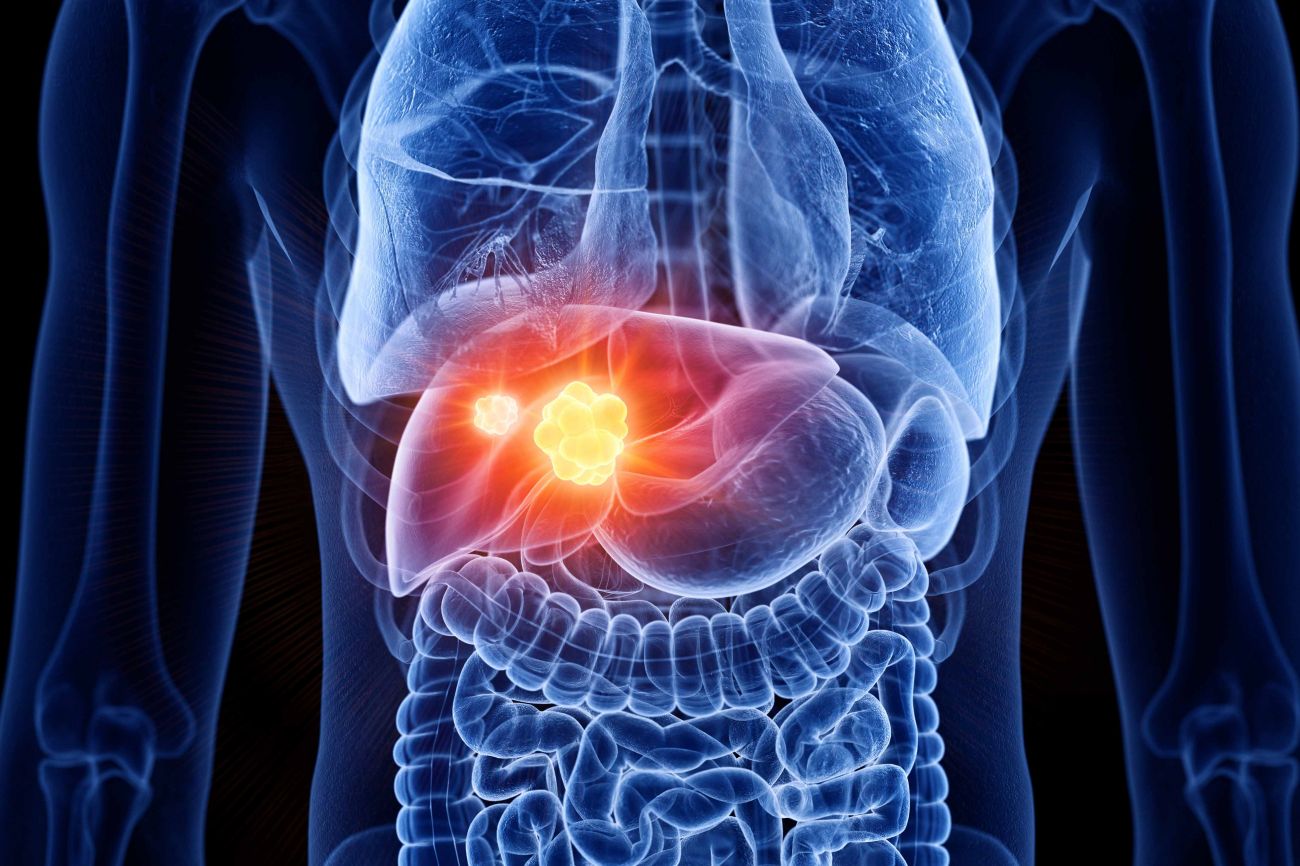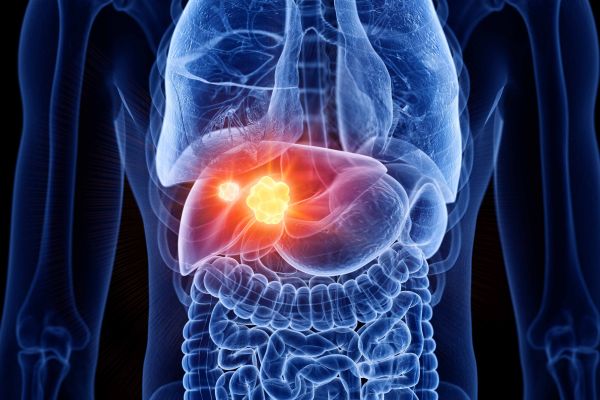Like most cancers, liver cancer typically develops slowly and quietly, without causing any noticeable symptoms in its early stages. While some patients with liver cancer don’t have any underlying conditions, liver cancer most often develops in patients with other conditions or diseases that affect the liver.
“Liver cancer usually begins in a liver that is significantly damaged,” according to Christos Fountzilas, MD, FACP, Assistant Professor of GI Medical Oncology in the Department of Medicine at Roswell Park Comprehensive Cancer Center. The damage can result from a number of causes ranging from infections and exposures to genetic conditions, including:
- Viral infections, mainly the hepatitis B or C viruses
- Excessive alcohol consumption
- Diabetes
- Obesity
- Inherited liver diseases, such as hemochromatosis and Wilson’s disease
- Nonalcoholic fatty liver disease
- Exposure to aflatoxins, mold-produced poisons that grown on crops
These conditions are major risk factors for developing hepatocellular carcinoma, which starts in the liver cells and is one of two primary types of liver cancer. The second primary type, cholangiocarcinoma (otherwise known as biliary cancer), forms in the cells of the bile ducts within the liver and is caused by “similar insults to the liver.” In other parts of the world, primarily Asia, infection with a parasite called liver fluke is a common cause of liver cancer, according to Dr. Fountzilas.
More commonly, however, tumors or cancer in the liver is not a primary cancer, but rather other cancers, such as lung, breast, colon, stomach and pancreas, that have spread. These are called liver metastases.
What are the warning signs of liver cancer?
Most liver cancer patients won’t experience symptoms until later stages of the disease. Symptoms include:
- Unexpected weight loss
- Loss of appetite
- Upper abdominal pain
- Nausea and vomiting
- General weakness and fatigue
- Abdominal swelling
- Jaundice in skin and whites of eyes
Talk to your primary care physician if you are experiencing any of these symptoms and be honest about other risk factors you may have. These symptoms may also point to other non-cancerous liver conditions. Treatment for hepatocellular carcinoma includes surgery, local liver-directed treatments such as radiofrequency ablation, trans-arterial chemoembolization and radioembolization, targeted therapy and immunotherapy. In addition, some patients might be eligible for liver transplantation.
Cholangiocarcinoma is mainly treated with surgery and chemotherapy. Some patients can receive targeted therapy based on the presence of specific abnormalities in the tumor.
Why Roswell Park for Liver Cancer?
Find out what makes Roswell Park unique in treating liver cancer.
How to avoid liver cancer
Dr. Fountzilas recommends taking measures to avoid organ damage that can lead to liver cancer, especially hepatocellular carcinoma. These include:
- Getting vaccinated or treated for viral hepatitis
- Using alcohol in moderation
- Eliminating recreational drug use and implementing safe injection practices
- Maintaining normal body weight
- Getting treated for diabetes and high cholesterol
Patients with cirrhosis should undergo screening for liver cancer for early detection at a stage where curative treatments can be an option.




